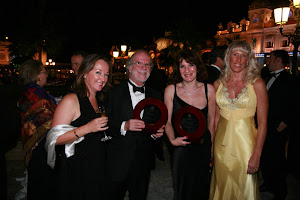
There’s a rumble in the legaltech jungle at the moment and 3E is on the drums. There has been lots of good feedback and a few “its amazing” comments and lots of deals but this has been followed by a backwash of “oh but we don’t want to have to chuck our current stuff away” type feedback. So for a while I’ve been chasing a demo and chance to hear what the score was in the Enterprise v 3E match.
According to Kaye Sycamore who heads up the Thomson Elite sales team and was recently promoted to overall boss, Thomson has employed an army of R&D techies on 3E and by all accounts this has cost a small fortune.
3E does simple stuff like clip into Outlook and SharePoint and wasn’t really worth getting screen shots for, because these days you almost don’t need to bother. Its all much more intuitive and a lot of software seems very similar to me. Click here for this, click there for that and lots of dedicated areas and slice ‘n’ dice options. Naturally I’ve oversimplified but you get what I mean, plus you can do what you like with it, with drag n’ drop customisation, so it will just look how you want it to look anyway.
About the criticism being levelled at 3E, Kaye Sycamore says this is not the first major change or leap that Thomson Elite have ever made and suggests that the “noise” in the sector is unnecessary. She says “this is a fifth generation system; we’ve had many big generational shifts spanning twenty years.” She admits that they’ve always previously developed on their existing platform but adds “there have been so many major technological developments in the last five years that we had to make the decision to stay with our current legacy system - Enterprise - or break free to create more benefits.”
Kaye says firmly “we aren’t asking any existing customers to migrate; Enterprise is going to continue side by side with full Elite support and backing. We want new customers and new markets and that is what 3E has been developed for.”
Whether this is a new plan or not, I don’t know, but I guess the furore has emerged because 3E salespeople have been in to see existing legal Enterprise customers to show them their new app’.
It’s a difficult sell, in that, if you just bought a new car and then get a leaflet about an improved one, you are either going to be a bit annoyed or bonkers to upgrade…unless some other big change occurs at the same time. A bit like trading your 4x4 jeep in for a little electric car. The reason would be blindingly obvious, you are saving the environment.
I think the reasoning behind the new 3E app.’ is similar to that. Technology has just moved on. It isn’t only Thomson Elite saying ‘we are changing for the better’; its everyone. Suddenly Interwoven have full functionality on the BlackBerry ®. We all get sms from Addison Lee, the taxi firm and you can get karaoke on your iPod (iKaraoke). Technology got much better, very quickly basically.
In my book their move makes sense. Why wait until Enterprise is falling over like our subway system and costs money to patch and takes long periods offline to fix? They can get something else running side by side like Richard Branson did with the railway. Taking time to update and look after existing stock but all the while bringing online a speedy new option at the same time. Kaye says “we are offering the best of both worlds.”
I guess if any of the above worries you then its time to look at your contracts and speak to Thomson Elite but with an £8 billion balance sheet, they really do have the greenbacks to do what they say.
Pissing you off as well doesn’t seem to me to be a very clever option. They are a market leader, have been for years so why would they shoot themselves in the foot by getting all dodgy on the support?
I think the only issue is keeping up with the Joneses. Someone got a new system before you: so why not work out if you can live with that? The other problem may be for the competing vendors in the sector. The new 3E ‘sell’ is decidedly combative. The main message from Team Elite is that you can migrate from whatever you currently have (not just 3E) and Thomson Elite will work out your connectors, click ins and middleware. If you want to migrate they will convert data and do configurations. Basically they are keen.
So onto SAP.
IT directors say that the new 3E project is pushing them to review SAP. If they are going to go to all the trouble of changing their whole system, then they may aswell look at the market options thoroughly. With a big campaign just started on telly in the UK “SAP isn’t just for big companies, its for SME’s (small to medium size enterprises) too. It would seem to be pushing itself back into our frontal lobes. Kaye is quick to respond “We are offering a global business solution. SAP are invisible in the USA and Asia Pacific, they have Germany and some of Europe and that’s it.” She does concede though that SAP functionality has turned heads. Kaye says “We’ve listened and taken law firm comments into account.” Hinting that 3E have covered every objection and you won’t be yearning for that SAP demo anymore. Kaye continues “law firms want global financial software and need to control risk long-term. If the market is marching forward, we want to lead.”
The development of 3E took three years and a hundred people on their engineering team to bring to market. Key performance indicators are entirely customisable with their ‘timekeeper’ functionality and its made to be essentially what you want.
I ask about the trends Kaye is seeing in law firms: any time n’ billing hot tips? Apparently not. Kaye says “its very different in every firm - some want lawyers to see all their financials and some don’t.”
Focusing back onto 3E, the message that becomes loud and clear is that their new offering is pure ERP. It is for the law firm with multiple offices, who doesn’t want disparate data or systems. Its for firms who want one view of the financial position for staff wherever they may be located around the world or different national locations. Kaye regularly says “the data I’m showing you is sitting in Los Angeles,” to demonstrate this point.
She says “you can look at individuals performance, view particular departments or look by client. Stats are real time or near real time depending on how the firm wants it. New information can feed into the system every minute or every week.”
Views consist of ‘billed, collected and written off’ and all is context sensitive. Reports are report-ready with different drill down. There is also a query option within 3E to put notes on files and send them to action queues of someone else in the legal chain. For money laundering you can add pdf’s of passports and link these to your DM.
A phrase that popped up was “self service”. Rather than having staff waiting for chunks of information they are sourcing it themselves. Kaye adds “its all about speeding up the process.”
I decide we have hit another SAP moment and ask her to defend the comment that software has got a little too much functionality these days, suggesting that a return to simplification may be around the corner. Kaye disagrees: “people need to grow into software, it needs to last the distance. There should be more than you need on offer. 3E has multi currency selections; can check up on lawyers and can compare lawyers and there is a ‘secure module’ for the uber bosses to see confidential areas.”
Having heard a lot of about customisation being easy but suspecting its all slick, sales patter, Kaye obligingly clicks to the back end and switches between screens and she drags off a couple of columns then clicks back to show they are gone.
I wonder about implementation times and this triggers some advice. She says: “So many firms go for a ‘big bang’ approach, wanting it all out of the way in one go. This inevitably takes between nine to eighteen months. (Small firms 9, big firms 18). We are proposing a phased implementation with individual pushes which may take up to six months at a time.”
She cites Team Elite clients Lovells and Weil Gotschall as taking eighteen months.
Kaye continues “its all about less human involvement in cash cycles.” I asked if she thinks law firms are faster at billing these days. She comments “some are and some aren’t.” I push for a tasty example but don’t get anything more.
Getting back to the technology and why Thomson Elite chose such a hard path for themselves, Kaye takes a deep breath and reconfirms: “technology is just so much faster these days with much less code. In previous software we would have had 5,500 lines of code now this is replaced with 500 and we have modernised using Web 2.0 techniques.
As Kaye globe trots a lot, I wondered which country was winning the tech’ dominance race? Was it still Australia, UK then USA? Kaye says “its very hard to compare country by country. Each has its own requirements. Australia is very competitive: there are only five big banks and two big airlines so they need to get a lot out of their tech’ purchases; the US is litigation focused which brings its own specialist needs and the UK similarly has its own economic factors.”
I enquire about market feedback and so far, Kaye comments “we are very happy. People see the benefits of re-architecting and take up is looking good.”
In my view most vendors are experts and offer a broad view of the legal world which you would do well to tap into. I ask what the problems are for law firms in taking up software projects. Kaye comments “for most firms, its their capacity to change. Also some law firms lose sight of what they are doing with a project and forget their objectives. She reiterates “it is important to phase introduction and implement progressively.”
As to business trends, Kaye comments “Most are looking at international growth and more efficiency. Also for us the buyer has moved seats. We used to speak mainly to FD’s but the decision now lies with IT directors.” As to why this might be Kaye confirms “its more a business system now, not just about the finance department.”
Wrapping up, I ask Kaye what she would like the legal market to know. She says “its about the three E’s: embedded business processes; enabling your firm to be its best and allowing you to be everywhere with one single, global financial system.
As to developments at Thomson Elite. Kaye finishes “In the past we’ve been perceived as the UK branch of a US entity but the changes that have taken place in the last twelve months have changed us culturally. We now see ourselves as a large, global software team.
So 3E or not 3E? I think it’s the vendors who should be worried, not you the law firm clients.
3E is built on Microsoft, Sequel server and .NET.□





